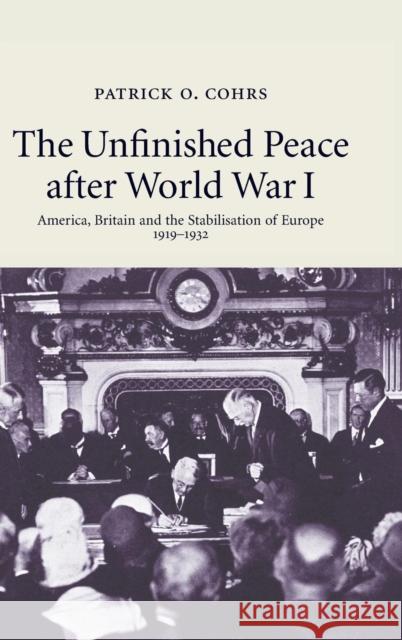The Unfinished Peace After World War I: America, Britain and the Stabilisation of Europe, 1919-1932 » książka
topmenu
The Unfinished Peace After World War I: America, Britain and the Stabilisation of Europe, 1919-1932
ISBN-13: 9780521853538 / Angielski / Twarda / 2006 / 708 str.
The Unfinished Peace After World War I: America, Britain and the Stabilisation of Europe, 1919-1932
ISBN-13: 9780521853538 / Angielski / Twarda / 2006 / 708 str.
cena 628,87
(netto: 598,92 VAT: 5%)
Najniższa cena z 30 dni: 554,12
(netto: 598,92 VAT: 5%)
Najniższa cena z 30 dni: 554,12
Termin realizacji zamówienia:
ok. 16-18 dni roboczych.
ok. 16-18 dni roboczych.
Darmowa dostawa!
A revisionist account of the role of America and Britain in Europe from 1919 1932.











